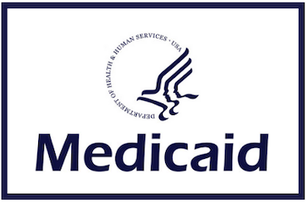Medicaid for ALS |
|
|
Medicaid is a health insurance program primarily for low-income families and individuals that provides free or low-cost coverage.
Medicaid is jointly funded by the federal government and state governments. States must adhere to broad federal requirements, but they develop and manage their own unique programs. Eligibility, benefits, and other details vary greatly by state. |
|
Do I qualify?
|
Eligibility requirements are different for every state. You do need to be a U.S. citizen (or qualifying noncitizen) and resident of the state where you apply.
Some states have expanded Medicaid to cover all adults below a certain income level. If your state does not have expanded Medicaid, eligibility will depend on a variety of factors such as your income, household size, disability, and age. |
|
In addition to your income level, state formulas will take your assets into account, including retirement plans like 401(k) holdings. If you have stopped working but have significant assets, you may not qualify.
If you do not qualify for Medicaid at first but then your financial situation changes, you can always reapply.
Find out if you qualify for Medicaid in your state.
If you do not qualify for Medicaid at first but then your financial situation changes, you can always reapply.
Find out if you qualify for Medicaid in your state.
Medically Needy Programs
Some states have “medically needy programs” for people with significant health expenses who earn too much to qualify for Medicaid. If you spend more out-of-pocket on health expenses than the gap between your income and Medicaid eligibility, you may qualify. In this case, Medicaid can help cover your additional out-of-pocket expenses. This is called “spending down.”
For example, if your state’s income eligibility is $30,000 but you make $40,000 and spend $15,000 out of pocket on medical expenses, then you can qualify because you have paid more than the $10,000 gap. In this case, Medicaid would help you cover the remaining $5,000.
For example, if your state’s income eligibility is $30,000 but you make $40,000 and spend $15,000 out of pocket on medical expenses, then you can qualify because you have paid more than the $10,000 gap. In this case, Medicaid would help you cover the remaining $5,000.
What is covered?
All state Medicaid programs are required to provide certain mandatory benefits, such as inpatient and outpatient hospital services, home health services, physician services, durable medical equipment, and transportation to medical care.
Other benefits are considered optional, which means that some states cover them and others don’t. Optional services include physical therapy, occupational therapy, speech therapy, respiratory care, dental services, prescription drug coverage, and hospice.
Other benefits are considered optional, which means that some states cover them and others don’t. Optional services include physical therapy, occupational therapy, speech therapy, respiratory care, dental services, prescription drug coverage, and hospice.
How do I get benefits?
You need to apply through your state’s health insurance marketplace or Medicaid agency. Every state’s Medicaid program has a different name. For example, California’s program is called Medi-Cal.
Learn more about Medicaid, including how to apply and contact information for every state. Be sure to plan for the waiting period between applying and receiving benefits.
Learn more about Medicaid, including how to apply and contact information for every state. Be sure to plan for the waiting period between applying and receiving benefits.
How does Medicaid relate to Medicare?
If you qualify for both Medicaid and Medicare, then Medicare will become your primary insurance and Medicaid will be secondary (covering the remaining 20% of expenses that Medicare does not). Medicaid may also cover some costs that Medicare won’t, such as a piece of durable medical equipment.
If you don’t have Medicare, Medicaid will be your primary insurance.
If you don’t have Medicare, Medicaid will be your primary insurance.
How much will I have to pay?
Medicaid will help save you money, though you may need to pay for some things out of pocket, such as copayments, coinsurance, deductibles, and other charges. There are limits to out-of-pocket costs. Again, it will depend on your state’s program. Some states charge premiums and others don’t.
What if I still have questions?
Talk with your local ALS organization or the social worker at your ALS clinic to get their thoughts and advice on your specific situation. They will know your state’s Medicaid program and how it has benefited other ALS patients.
Long-term Care Through Medicaid
Through a separate Medicaid program, states also help pay for long-term non-medical care for some individuals. Eligibility guidelines are different from Medicaid’s health insurance program, and you must apply separately.
Learn more about Medicare and private insurance.



